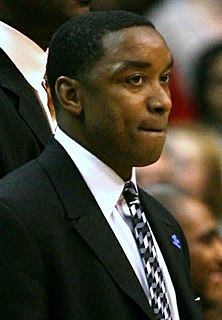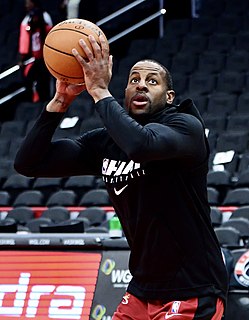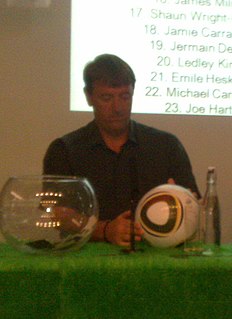A Quote by Carson Wentz
A lot of guys have tons of talent, but it boils down to the mental side of things. Preparing and knowing your offense and studying the defense. Being able to read and react quickly. The mental side is often overlooked.
Related Quotes
LeBron doesn't have any weaknesses, or he doesn't have a glaring weakness. So you've got to pick up on the smaller things to try to make him uncomfortable. Like knowing which side he likes to shoot threes off the dribble, which side he likes to drive. One side he'll drive left more often, and the other side he'll drive right more often.
One of the things we need to do is address mental health care as an integral part of primary care. People often aren't able to navigate a separate system, so you see successful models where a primary care physician is able to identify, diagnose, and concurrently help people get mental health treatment who have mental health issues.
Something seems wrong to most people engaged in struggle when they see more people hurt on their own side than on the other side. They are used to reading this as an indication of defeat, and a complete mental readjustment is required of them. Within the new terms of struggle, victory has nothing to do with their being able to give more punishment than they take (quite the reverse); victory has nothing to do with their being able to punish the other at all; it has to do simply with being able, finally, to make the other move... Vengeance is not the point; change is.
All athletes speak about the mental element of athletics, and it usually boils down to the same thing: if you can remove your ego from the game, you can function with much more clarity and you are more likely to succeed. Wouldn't it be interesting if we all began speaking about the mental element of our lives in this way?
Since ancient times, the left side has stood for the side of the unconscious or the unknown; the right side, by contrast, has represented the side of consciousness or wakefulness. Through the late twentieth century, the movement of the Left limited themselves to a materialist understanding of reality- exemplified by Marxism- demanding social justice and economic equality but not the restoration of intuition and the recognition of the hidden, qualitative dimensions of being suppressed by the mental-rational consciousness, narrowly focused on the quantifiable.




































